7 main problems of the FLA system outlined in the report: broadcast of the presentation
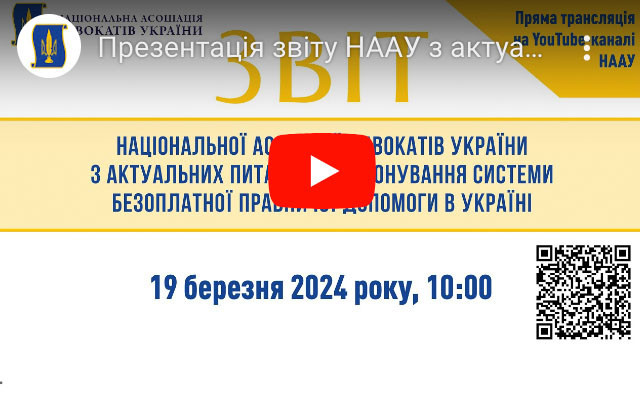
The deepening crisis in the relations between the state and the bar in the field of free legal aid, the UNBA's position being ignored for a long time, has led to fundamental changes characterized by the loss of the primary focus on the individual as the highest value by the FLA system.
This is stated in the Report on topical issues of the functioning of the legal aid system in Ukraine, which is presented today, March 19, by the Ukrainian National Bar Association.
The document, prepared by the UNBA Committee on Legal Aid, demonstrates the cause-and-effect relationships that determine the existence of problems in the FLA system and effective ways to solve them.
The main problems include:
1. Monitoring the quality of FLA provision.
2. Distribution and fulfillment of orders for FLA provision.
3. Payment for the services of lawyers.
4. Appointment of a lawyer to participate in a separate procedural action.
5. Participation of advocates in criminal proceedings in absentia.
6. Identification of the advocate with the client.
7. Termination of the provision of free legal aid in suspended criminal proceedings.
Despite the proactive partnership, creation and testing of its own (not funded by the state budget) resources for the administration and service provision of the Bar, the Ukrainian National Bar Association was artificially deprived of the status of a partner in the implementation of the state policy in the field of FLA provision, and its institutional capacity was completely ignored.
In particular, in the absence of any need for this and simultaneously with the existence of working mechanisms in the bar, the state has created and financed at the expense of taxpayers the procedures for selecting lawyers, their training, maintaining their registry, assessing the quality of their work, resources for communication with them, etc., which are implemented by the state institution - the Coordination Center for Legal Aid Provision. At the same time, the quality of the work of advocates is assessed by the staff of state bodies or local governments, who often have no idea about the specifics of the work of an advocate.
The UNBA systematically states that all this leads to a distortion of the model of the Bar and violation of the rights of lawyers. In addition, the ultimate bearer of the burden of all negative changes is the recipient of assistance - the one for whom and for whom this system was supposed to work.
In addition, a significant portion of the funds allocated for FLA is spent on the administration of resources and procedures that the bar proposed to implement for the benefit of legal aid recipients without funding from the state budget.
The report also notes that the constitutional and legislatively defined model of guaranteeing the right to professional legal aid to everyone includes a special executor of the organization of its provision - the bar. And it is the advocates, as special entities that meet specially defined requirements, and the activities they carry out to provide legal aid, the quality of which is guaranteed by special procedures and mechanisms, that are the defining elements of this model of providing everyone with professional, not just any, legal aid. In this context, the legal grounds and content of the activities of the FLA centers are of particular importance, since they actually perform not only administrative functions of mediation between other subjects of legal relations on the provision of FLA (between recipients and providers of FLA), but also a significant part of substantive functions.
Popular news
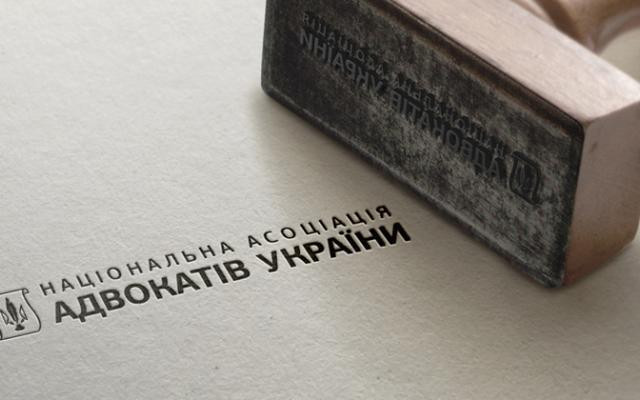
Self-government
The BCU demands a review of the composition of the government working group on reforming the advocacy profession
The President of the UNBA, BCU Lidiya Izovitova, appealed to the Cabinet of Ministers of Ukraine to review the composition of the working group on improving legislation in the field of advocacy and legal practice.

Discussion
Why lowering the age of marriage lacks legal logic
Although until 2012 there was a provision in family law that allowed children to marry from the age of 14 under certain circumstances, its return to Ukrainian law would contradict international obligations and the logic of criminal law.
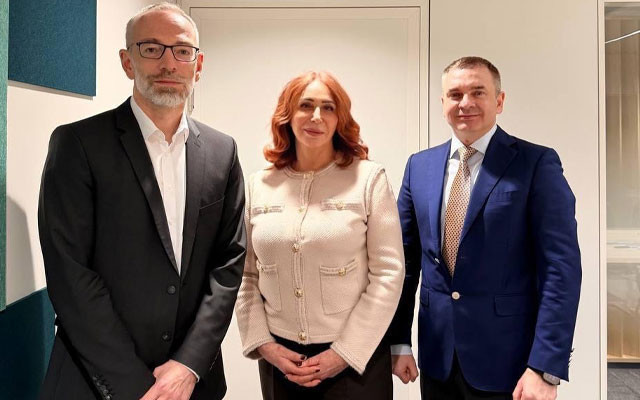
European integration
Open dialogue between the UNBA and the European Commission on the path to EU
The Ukrainian National Bar Association held a working meeting in Brussels with Mr Wolfgang Nozar, Head of Unit for Governance, Rule of Law and Financial Assistance, Directorate-General for Enlargement and Eastern Neighbourhood (DG ENEST), European Commission.

Self-government
A report on Ukrainian advocacy was presented in the European Parliament
Can a shadow report on advocacy replace the political framework of the Roadmap on the rule of law with demands for the restructuring of self-government? Where is the line between accountability and the seizure of institutions? And how can we respond to narratives with data rather than impressions?
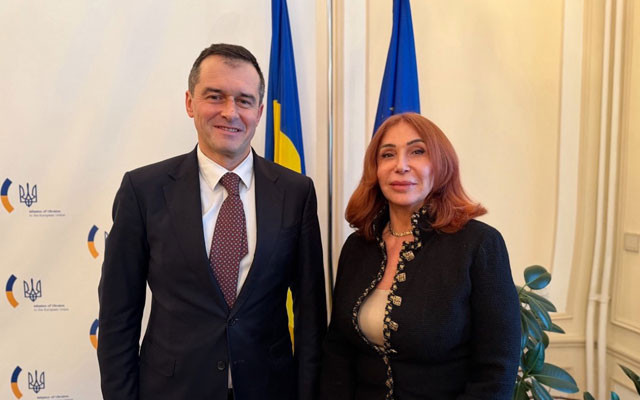
European integration
UNBA and Ukraine's representation to the EU have synchronized their priorities
On February 5, in Brussels, the President of the UNBA, BCU Lidiya Izovitova held a working meeting with the Ambassador Extraordinary and Plenipotentiary of Ukraine, Representative of Ukraine to the European Union Vsevolod Chentsov.
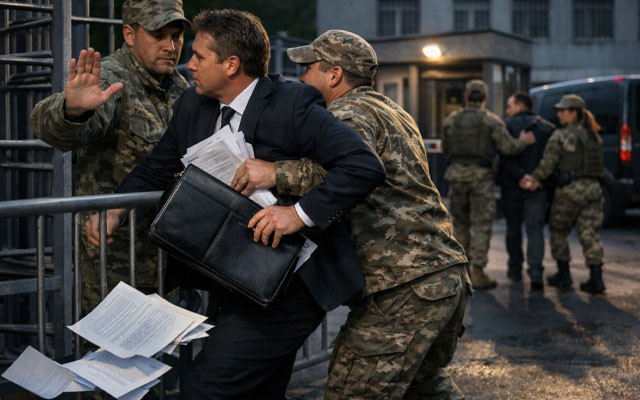
Guarantees of the practice of law
Proceedings opened following attack on advocate in Dnipro
The Committee for the protection of advocates' rights and guarantees of legal practice of the UNBA appealed to law enforcement agencies in connection with an advocate's report of an attack while performing his professional duties. The information was entered into the Unified Register of Pre-trial Investigations and a pre-trial investigation was initiated.
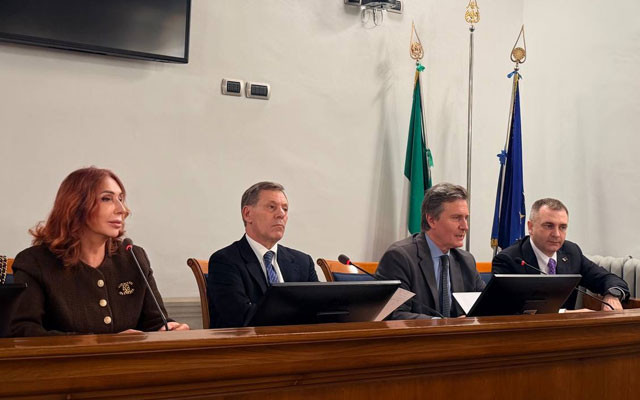
Interaction
«With us — to Europe»: Italian advocacy supports UNBA initiatives
On January 30, a meeting was held in Rome between a delegation from the Ukrainian National Bar Association and the National Bar Council of Italy (Consiglio Nazionale Forense, CNF) on the standards and practices of the legal profession and their significance for Ukraine's European integration process.
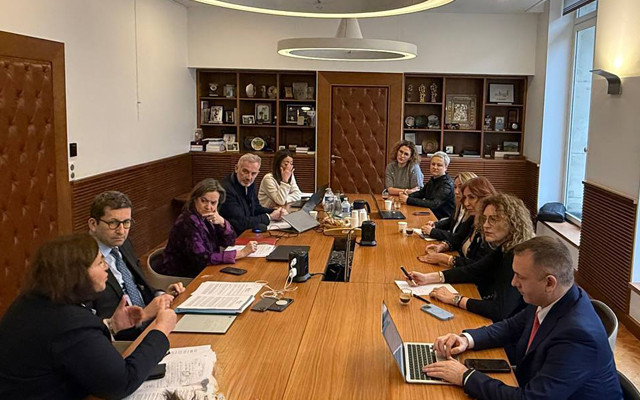
Interaction
France confirms cooperation with UNBA on reforms in the field of the rule of law
On January 29, a working meeting between representatives of the Ukrainian National Bar Association and the French National Bar Council (Conseil National des Barreaux, CNB) took place in Paris.
Publications

Volodymyr Matsko Extradition as a systemic form of rights violations

Victoria Yakusha, Law and Business The anti-corruption vertical cannot «take care» of the Bar as an institution, - acting head of the HQDCB

Censor.net Protecting advocates – protecting justice: addressing concerns about the new law

Ihor Kolesnykov A BRIEF SUMMARY REGARDING THE APPLICATION OF THE ORDER ON EXTENDED CONFISCATION IN LATVIA REGARDING FINANCIAL ASSETS OF…

Valentyn Gvozdiy WORKING IN A WAR ZONE

Lydia Izovitova Formula of perfection

Sergiy Vylkov Our judicial system is so built that courts do not trust advocates

Iryna Vasylyk Advocacy in the proclamation of Independence of Ukraine
